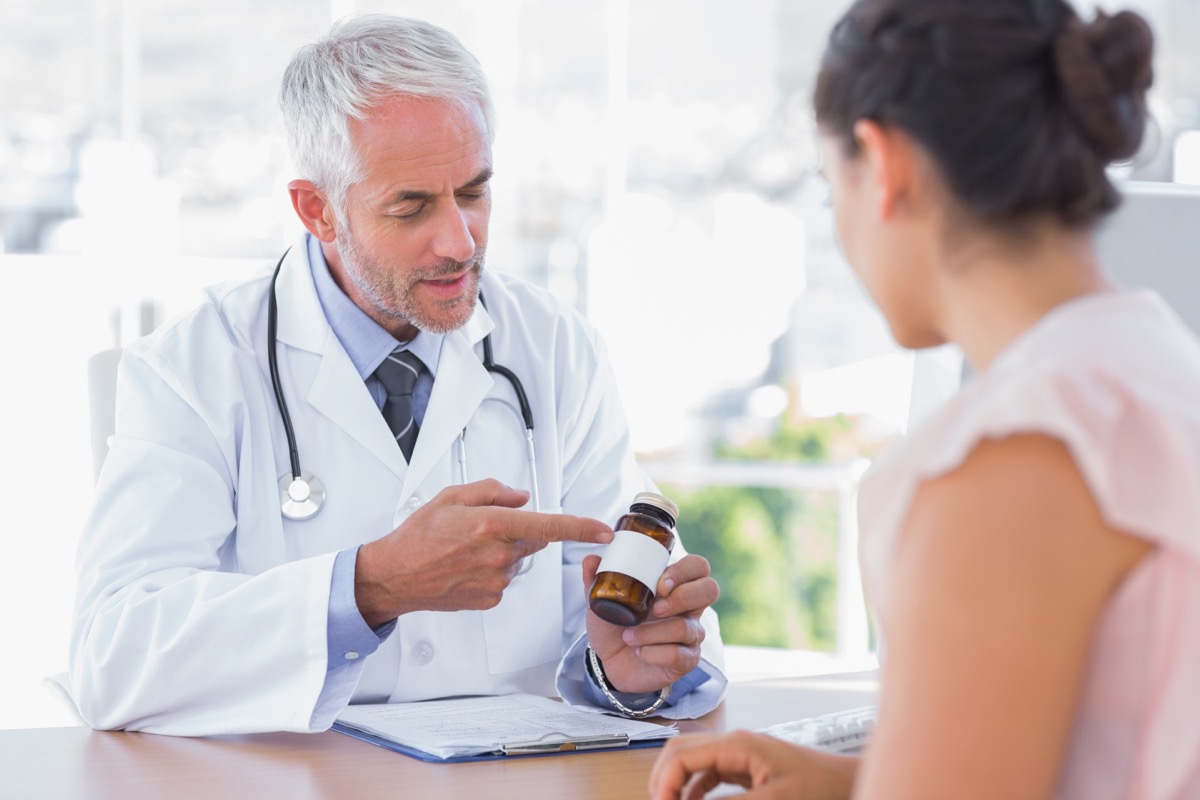Nutrition is crucial for healthy aging, but supplements aren’t as effective as food when it comes to getting the right amounts of vitamins and minerals, and some can be dangerous. “My motto is always ‘food first’.” says Rachel Berman, R.D.Calorie Count Director of Nutrition. “Foods found in nature are always more nutritious because our bodies are used to processing vitamins and minerals that come from natural sources.” Here are five supplements you should never take after 50. Read on and to ensure your health and the health of others, don’t miss out. Sure signs you’ve already had COVID.

A UC Davis study showed that too much folic acid can aggravate complications related to vitamin B-12 deficiency, which could lead to dangerous health conditions like anemia and nerve damage. “There have been concerns that some people may be getting too much folic acid from a combination of sources, and we wanted to find out if there were grounds for those concerns.” says Ralph Green, professor of pathology and laboratory medicine at UC Davis. “Our results show that higher levels of folic acid could trigger a metabolic imbalance that leads to more severe vitamin B-12 deficiency… We have to worry about folic acid supplementation. The fact is that many people get more what’s good for them. If they happen to be deficient in vitamin B-12, more folic acid could actually harm them.”


Hormone therapy such as HGH (human growth hormone) can be dangerous, experts warn. “In this entire field, I’ve only come across one board-certified endocrinologist,” says Thomas Perls, M.D.associate professor of medicine and geriatrics at Boston University School of Medicine. “It’s outrageous that people think they can prescribe these toxic hormone soups… There is no scientific proof of this. And studies show that increasing HGH levels with medication predisposes people to heart disease, diabetes, and cancer.”


Anti-aging supplements haven’t been shown to work, experts warn, and most aren’t regulated by the FDA. “Many anti-aging doctors sell their own lines of nutraceuticals at very high prices,” says Dr. Perls. “It’s a better profit margin than what cocaine dealers get.”
“We don’t know if they could help, but they could be harmful,” says Winifred K. Rossi, deputy director of the Division of Geriatrics and Gerontology at the National Institute on Aging.


Vitamin E is a common ingredient in brain health supplements, but too much can be dangerous.
“High doses of vitamin E supplementation are associated with an increased risk of death,” says dietitian Maxine Smith, RDN, LDwho recommends getting vitamin E from foods like nuts, seeds, and dark green leafy vegetables.


Over-the-counter sexual enhancement products should be avoided, experts warn. “Products that promise to enhance sexual performance have been promoted for more than a century, dating back to the patent medicines of the 19th century; these products were characterized by highly exaggerated claims and sold to the public by unscrupulous manufacturers with no evidence of safety or efficacy “. says W. Steven Pray, PhD, DPh. “Some manufacturers of impotence cures claim that their product is ‘scientifically proven’ to work. When a consumer sees the phrase ‘clinical studies prove it works,’ they should exercise caution, as these claims are often false. of success are often false”. And to protect your life and that of others, do not visit any of these 35 places where you are most likely to get COVID.
Ferozan Mast
Ferozan Mast is a science, health, and wellness writer who is passionate about making information backed by science and research accessible to a general audience. read more
